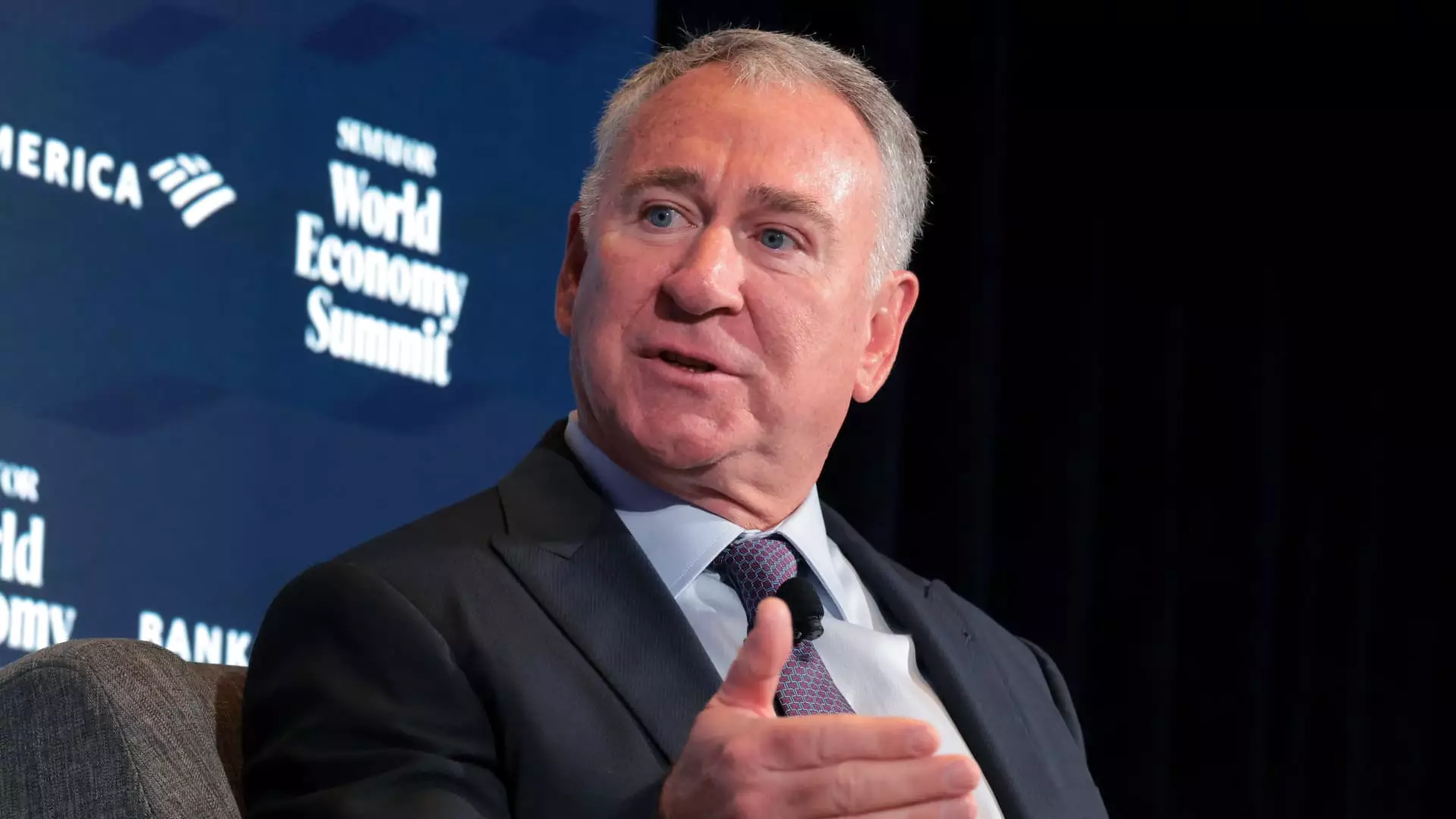Ken Griffin, the formidable founder and CEO of Citadel, recently articulated a poignant concern regarding President Trump’s aggressive trade policies. As a once-ardent supporter of Trump, Griffin has shifted gears, criticizing the administration’s handling of economic diplomacy and its detrimental impact on America’s international standing. The United States, he argues, isn’t merely a geographical entity; it’s a universal brand—a blend of cultural richness, financial prowess, and military might. Trump’s trade war threatens to fracture this identity, eroding decades of carefully cultivated global prestige. The shift from a collective aspiration to a nation in retreat is not merely a public relations disaster—it’s an existential threat.
The Volatility Effect
Trump’s introduction of tariffs unlike any seen in generations sent shockwaves throughout Wall Street, sparking a volatility that many investors had not anticipated. The maneuvers—from bold tariff declarations to sudden halts—demonstrate a bewildering unpredictability that fosters uncertainty among global investors. The immediate repercussions saw Treasury yields climb and the dollar weaken, unmistakable signals that confidence in the U.S. market is faltering. It challenges the very idea that the U.S. Treasury market represents a bastion of stability during tumultuous times. When investors begin to perceive the U.S. economy as anything but resilient, the ramifications extend far beyond Wall Street—affecting jobs, wages, and the national psyche.
A Brand at Risk
Griffin starkly noted that in the realm of finance, “no brand compared to the brand of the U.S. Treasury market.” Yet, with every bombastic announcement from the White House, the credibility of that brand diminishes. This is not merely about bottom lines; it’s about the complex web of trust that underpins international trade and investment. When trust erodes, the long-term repercussions can be dire and irreparable. It is imperative for those in power to treat the American brand with the care it deserves, knowing that the slightest misstep can tarnish its integrity irreversibly.
The Call for Thoughtful Leadership
Moreover, Griffin’s appeal for more thoughtful leadership resonates deeply. The current administration’s approach to international relations appears reactionary rather than strategic. As someone who once aligned with the Republican party’s ideals, Griffin’s evolution reflects a growing concern among many centrist liberals who fear that short-sighted policies could lead to long-lasting reputational damage. There is a desperate need for dialogue and collaboration to restore the image of America, ensuring that it remains not only a place of economic opportunity but also a beacon of democratic values and cultural inspiration.
As we navigate these tumultuous economic waters, it becomes increasingly clear that we cannot afford to lose sight of what truly makes America unique. The path ahead demands a nuanced understanding of economics and a rejuvenated commitment to maintaining our global standing. Failure to do so risks relegating the United States to the status of an isolationist nation, stripped of its former glory and influence in a complex world.

